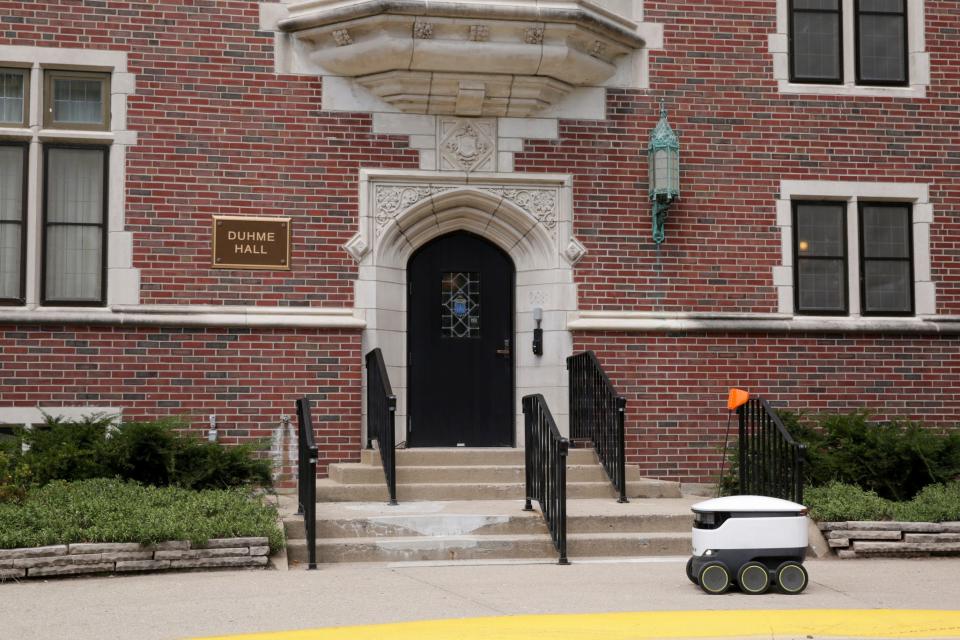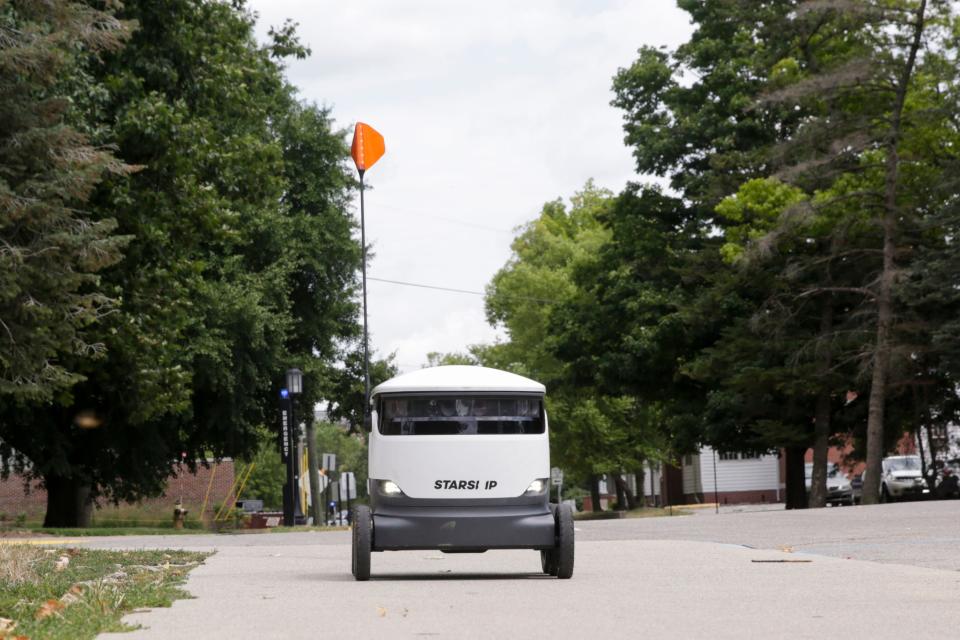'A burger, a coffee, whatever': Food-delivery robots may soon roll up to Purdue's campus
WEST LAFAYETTE, Ind.— How do delivery robots operate in winter? Are the robots insured? What if no one picks up the delivery?
A board in West Lafayette, Indiana, has unanimously approved a pilot program bringing robotic delivery services to Purdue University, as well as a suspension of city code allowing small, cooler-size robots to operate on city sidewalks.
But first, the board members had several questions about the program from San Francisco-based Starship Technologies, before it could debut in September.
Robert Wynkoop, senior director of auxiliary services for Purdue, said on Tuesday that the delivery robots would transport food and products from the university's dining and retail locations.
"That could be a burger, a coffee, whatever the case may be," Wynkoop said. "We've spoken with other university's dining programs and public safety offices and they have had no problems. This is just another option of a service."
Michelle Dearing, a member of the West Lafayette Board of Public Works and Safety, said she wanted to know why the city was interested in offering delivery robots.
"This is something that has come our way to be more appealing to not just future residents, but for future corporations as well," director of development Erik Carlson said.
Off-campus, too: Amazon's delivery robots are coming to California

Sana Booker, a city clerk, brought up the potential challenges of snow and ice, noting that West Lafayette has seen its fair share of habitual winter-weather layers over the years.
Wynkoop said the delivery robots have operated in a city north of London for over a year and have so far not seen mobility issues.
The pilot program would remain temporary until the city code for motorized vehicles on sidewalks is changed, Carlson said. But if the delivery program doesn't work out before then, it may be eliminated at any time.
Concerns over the safety of people, pets and property arose, but Starship Technologies said all of its small robots are insured. Carlson said that after seeing the robots in action, concerns about potential harm should be small.
"There is about an 18-to-24 inch-zone the robots will stop in if it encounters a person or an object," he said. "Though they can get up to 4 mph, they typically drive slower than that due to monitoring the pedestrian traffic around them."
Wynkoop said the robots' hours of operation would likely last from around 7 or 8 a.m. to 10 p.m., and would be present on sidewalks only when making a delivery. Otherwise, the robots would return to their home base, awaiting the next delivery.
Domino's, too: Robots may be delivering your pizza

Private retailers who lease with the university would have the ability to use the Starship Technologies devices, too, Wynkoop said.
The level of potential revenue for the university was unclear, Wynkoop said.
"This service is a good opportunity for people with disabilities to get food and goods more easily delivered to them, something we have heard from the other universities participating with Starship Technologies," Wynkoop said.
This article originally appeared on Lafayette Journal & Courier: Food delivery robots ready to roll at Purdue University campus

